Is it profitable to grow autoflowers?
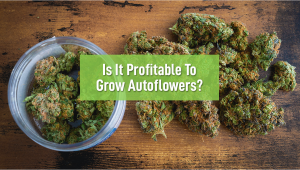
- 1. Space
- 2. Yield
- 3. Doesn’t depend on seasons
- 4. Short life cycle
- 5. Quality
- 6. The best ways to maximize yields
- 7. In conclusion
Growing cannabis plants is undoubtedly the best hobby you could ever cultivate. With so many strains around, it’s easier than ever to buy seeds and harvest huge buds. Many growers are now shifting to autoflowers simply because it produces huge harvests in a very short period of time. However, what if you want to take it to the next level? What if you want to start with a commercial operation? Is it profitable to grow autoflowers?
The short answer is: yes, it’s indeed profitable to grow autoflowers for both home growers and commercial growers, who can grow each gram for as little as $2. There’s a lot you could do by just saving time. It wasn’t possible, say, maybe 5 years ago when autoflowers were lagging behind photoperiod strains in many aspects. In fact, when the first autoflower named Lowryder was introduced, it did garner attention.
However, it was short-lived since it produced small yields. The situation is much different now. Autoflowers are picking up pace, and how! Pure landrace and inbred populations of autoflowers lack in the yield and potency departments. However, they possess a valuable biological treasure that many cannabis breeders seek: The autoflowering gene. By crossing original autos with more productive Sativa and Indica photoperiod varieties, breeders have successfully created hybrid cultivars that boast the best of both worlds. These specimens also have the autoflowering trait and rapid growing times, but they also feature much higher levels of cannabinoids such as THC, far superior terpene profiles, and yields that make them worthwhile additions in the grow room and garden.
Many growers are shifting to autoflowers whether it’s due to the stealth, yield, or even the magnificent aroma they produce. But, these are mostly passionate growers that grow at home. And, stealth plays an important role. What about commercial operations, though? Stealth is not that important in this case because commercial operations usually require a license and loads of capital. In that case, will autoflowers work? Yep, they will. Here are a few reasons:
1. Space
Whether it’s a commercial operation or one that you grow at home, space plays an important role. If you own a farm that covers about 10,000 square feet, you must grow plants that give you maximum profit. If small plants can perform as much as bigger plants, then you’re obviously going to choose smaller ones.
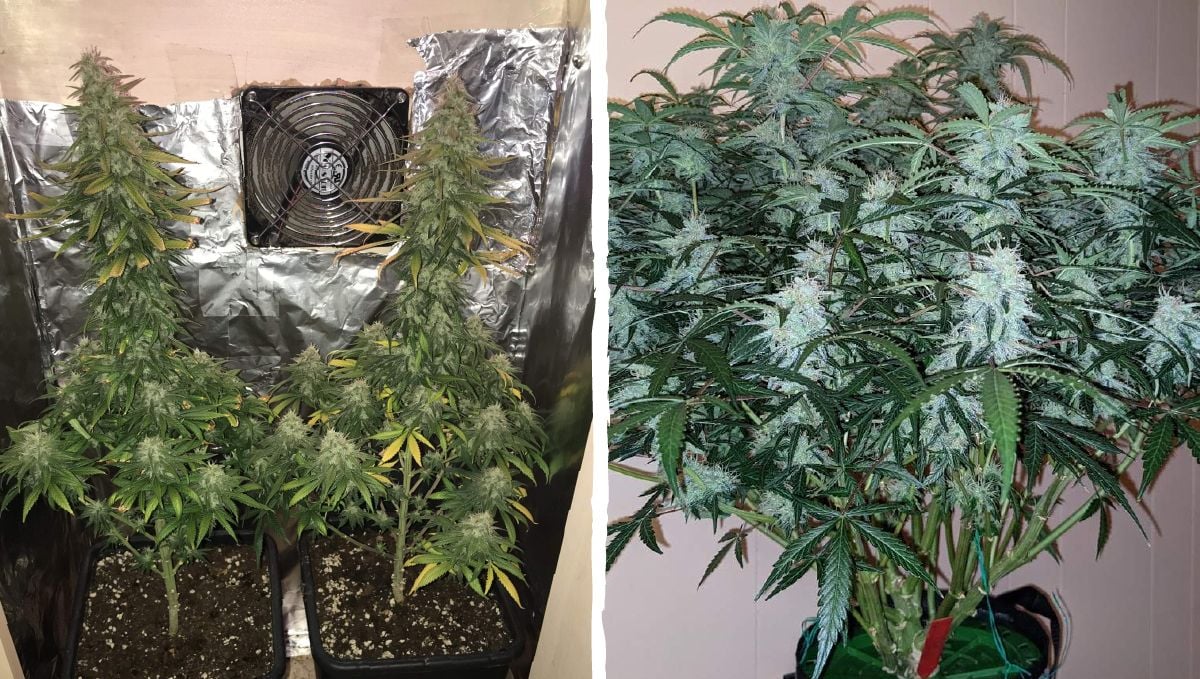
Commercial growers that grow plants outdoors love autoflowers because of their small size. Not only do they help with stealth, but it’s easier to control smaller plants. Most autoflowers grow up to 5 ft outdoors while some only grow up to 4 feet. It’s pretty easy to manage them. Most importantly, you could grow two plants instead of one big photoperiod plant, making it an amazing choice for those that don’t own large farms.
Thanks to their Ruderalis origins, autoflowering plants are genetically wired to remain small and compact. Look at a pure Ruderalis strain, and you'll see a small, narrow, and almost delicate specimen. Breeders have successfully infused this morphology into autoflowering hybrids, which makes them an excellent choice for commercial growers looking to flip a profit. Cultivators can also leverage environmental factors, such as pot size and low-stress training, to keep their specimens at even small and more functional heights.
3. Yield
Yield is more important than space, time required to harvest, and even the number of times you harvest your crop. Obviously, the more the plant yields, the more moolah you make. Autoflowers were notorious to produce really small yields a few years ago. But to be honest, that has changed completely now. Many autoflowers are capable of producing as much as regular cannabis strains now.
The yield also depends on whether you grow it indoors or outdoors. And, the strain, of course. For instance, Purple Punch Auto produces as much as 450 to 600 grams per m2 when grown indoors. Outdoors, you can expect about 200 grams per plant. While all autos may not produce as much, it is a sizable yield because you’re saving space and time. If compared with a regular strain, you’d be looking at almost 500 grams per plant every 6 months.
To increase yields, you can employ several training techniques like SOG (Sea of Green) and LST (Low-stress training). SOG works really well indoors. You can even train small plants earlier in the vegetative stage to get bountiful yields later. LST should always be performed during the vegetative stage. For that matter, train the plants only during the vegetative stage no matter what method you’re using
Remember not to over-stress the plants, though. Autos definitely grow faster but your operation can go south quickly if you don’t take care of them well. Regular cannabis strains have ample time to recover, but since autos grow based on a specific schedule, the plants don’t have all the time in the world.
3. Doesn’t depend on seasons
Autoflowers beat its competition by a mile when it comes to seasons. Traditional photoperiod plants depend on the season to start flowering. If growing outdoors, you’ll have to wait for at least 2-3 months for the plants to complete their vegetative cycle and then switch to the flowering phase. And, this happens only if you plant the seeds on time.
Growers plant seeds depending on the zones they reside in. Photoperiod plants will remain in the vegetative stage as long as they receive more than 15 hours of sunlight. So, if you plant seeds in January (just as an example), the plant will keep growing in the vegetative stage for an indefinite period if it receives at least 18 hours.
As soon as the season changes and the plants receive less than 15 hours of light, they start flowering. Indoor growers can control the flowering phase by manipulating the lighting. But, since you cant control sunlight, you will have to wait until the seasons change.
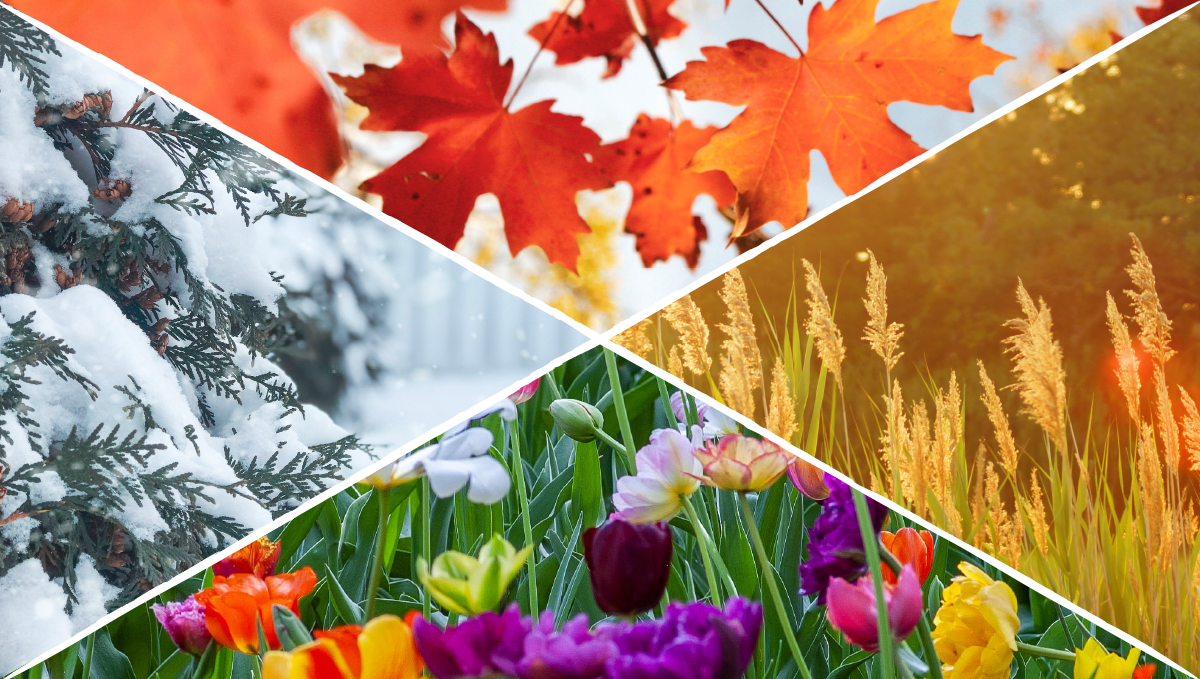
If you grow autoflowers, though, you will never have to worry about seasonal changes. Why? It’s because autoflowers will flower after growing for a certain period irrespective of the light they receive. Thus, if you plant seeds in January for instance, you can expect the plant to start flowering by mid February. Most autos start flowering a month after they are planted.
If you rely on autoflowers for your commercial operation, you not only save time but you can grow them both outdoors and indoors at any point of time throughout the year. Traditional cannabis strains can be harvested only twice every year, but autos guarantee perpetual harvests every single time.
4. Short life cycle
As a commercial grower, time is your ally. The faster you harvest the yield, the stronger your business. Most growers prefer autoflowers mainly because of its life cycle that tends to be over even before you realize it. While regular cannabis strains need about 5-6 months to finish their complete cycle including the vegetative and flowering phase, many autoflowers complete their cycle in just under 3 months.
A shorter life cycle also makes it less likely for pests to attack the plants. Not that the pests don’t attack outdoor auto crops – they do – but since it takes time for the pests to completely take over the plants, autos have an edge due to their short life cycle.
For instance, spider mites are nothing short of a nightmare for most cannabis growers. However, it takes time even for these pests to spread their webs. Moreover, spider mites attack plants during the flowering cycle, and since autos have a fairly short flowering cycle, it becomes easier to manage the plants.
By combining tried and tested integrated pest management (IPM) strategies with the short flowering time of autos, you’ll minimize potential crop damage—a hugely important factor when it comes to commercial production. Such strategies include using insect screens and sticky traps indoors. You can also take advantage of beneficial predatory insects that will help to keep pest populations low. Outdoors, sowing companion plants in close proximity to your auto crop will help to attract beneficial insects while driving pests species away.
As you can surmise by now, planting autos can give quicker harvests and double the yield if you compare them with photoperiod plants. And, talking about yields, let’s discuss why autos perform well in this department too.
5. Quality
The topic of yield involves more than just quantity. Growers also need to focus on the quality of their cannabis flowers in order to impress buyers and ensure returning customers. Autos have the potential to produce sticky buds coated in trichomes loaded with cannabinoids and terpenes. While genetics and strain selection play a big role here, so do growing techniques. Providing adequate lighting will enable plants to ramp up cannabinoid and terpene biosynthesis. Whether you prefer to use synthetic nutrients or organic approaches, ensuring your plants have access to all of the macronutrients and micronutrients they need will also improve the quality of their flowers. But the work also continues post-harvest. Properly drying and curing your autoflowering buds forms the final, and arguably most important, piece of the puzzle that ensures excellent quality cannabis flowers.
You can harvest more than 50 pounds of cannabis buds, but they are worth nothing if they aren’t high-quality buds. Nobody likes airy buds that are withered. Just about everyone loves dank stuff. And, that should be your goal. Look for good seeds and strains that are guaranteed to produce the best marijuana you can ever get.
Gorilla Glue Auto, for example, has made a name for herself. Named Gorilla Glue due to the enormous amount of resin she produces, she will even clog your trimming scissors! As a commercial grower, look for strains that perform way better than anything else. Sure, you’ll see strains created left right and center every day, but go for strains that have already produced the results you’re looking for.
6. The Best Ways to Maximize Yields
If the bottom line is your number one concern for your new cannabis operation, there are a couple of surefire ways to help boost that final yield number. These tried and true methods will help ensure that your growing operation is as successful and profitable as possible.
Starting with the Top Quality Genetics Is Essential
Seed-producing and selling companies are a dime a dozen these days. What was once a pretty sparse marketplace has quickly become inundated with what some may say is an oversupply. It is important to understand that not all seeds, or the companies that produce and sell them, are equal. Far from it in fact.
Investing in top-tier genetics from an established breeder is the best place to start when crafting your cannabis-growing operation. Quality genetics will not only improve your final yields but will also ensure that the bud produced is of the high standard that guarantees it will sell for top dollar.
Training Your Crop Makes A Huge Difference
Cannabis plant training comes in all shapes and sizes, but when focusing on autoflowering genetics there are really only a couple of options you should be considering. This is due to the fact that autos have a limited life cycle and therefore the window of opportunity to train them is very small.
The two main types of training that you should focus on are both low-stress training techniques, so you don't have to worry about stunting the vegetative growth and reducing the final yield. They are:
- The tie-down method - This technique involves gently tying down the main stem and branches during the vegetative phase of growth. The idea is to change the plane of growth from vertical to horizontal, which comes with a few big advantages. First up, the whole canopy (and the budding sites within the canopy) is opened up so there is more even light penetration and much more air exchange. This type of training also essentially tricks the plant into more evenly spreading out the growth hormones and nutrients, instead of focusing on the main cola.
- ScrOG training - This technique involves the use of a trellis or screen over the plants, which results in similar results to the tie-down method, but is much easier to implement. The screen is set up in such a way that as the main cola grows to the height of the net, it can be tied in place. Then as the secondary branches reach that height, they are also tied off too the net which creates a perfectly horizontal canopy.
Look, there are heaps of home autoflower growers out there who have had great success with heavier forms of plant training, such as topping or super cropping. But these training techniques come with a lot of risks, and if you are not experienced with growing in general, or with a particular strain, then we just can't recommend it. Stick to the basics and you will be rewarded with a much better quality end product.
Use Top-Quality Nutrients And Media
When it comes to growing autoflowering cannabis, one of the most important factors for achieving great results is the quality of your nutrients and substrate. You want to make sure you are using quality nutrients and media from companies that know what they are doing, as this will help ensure your plants absorb every last drop of goodness. Nutrient ranges from companies like Green Planet, Botanicare, and Advanced Nutrients are all very reliable, but there are a lot of other top-quality options on the market.
For media, you can't go wrong with a quality coco-coir mix. Coco-coir is a great medium for autoflowering cannabis as it is not only light but also retains moisture and is full of useful trace elements. But, if you want the biggest yields possible, your best bet is to jump on the hydroponic train...
Sure, hydro cultivation can seem a little intimidating if you have never done it before, but once you get your head around the basics, you will find that it's actually really easy and can be a lot of fun. The main advantage that hydroponic cultivation has over traditional media-based growing is the fact that you can give your plants the exact ratio of nutrients that they need when they need it. This allows you to get more out of your plants than with organic methods, and the rate of growth and yield can be very impressive.
7. In Conclusion
If you’re looking to save money, time and effort, you definitely need to grow your own and if you want to do it even faster, you should go for autoflowers. Autoflowers allow you to get all the benefits of home growing in as little as 8 weeks, saving you lots of money and up to 30% per grow cycle! Now, if you’re not sure exactly how much you can save, here’s a table to give you an idea.
| Autoflowers Average Price Per Gram (for 1 plant) | |||||
|---|---|---|---|---|---|
| Initial Cost | Cost (Per Week) | Initial cost and maintenance total | Price Per Gram (plant average of 100g) | ||
| Seed | $13 | Energy bill | $3.2 | ||
| Pot | $1.50 | 3- part Nutrients | $0.05 | ||
| Substrate | $5 | Water | $0.00141 | ||
| Initial Cost | $19.50 | Grow cycle total (9 weeks) | $29.30 | $48.80 | $0.48 |
Keep in mind that this is just a guideline and you can get flowers for cheaper depending on the specific strain, growing conditions, and equipment. If it’s your first time growing cannabis you’ll also have to buy the following: grow tent $60, light fixture $65, extractor $15, and oscillating fan $10 and add the wattage consumption of the extractor and oscillating fan which costs around $2.48 per week.
All of this adds up to around $173, plus the costs mentioned in the table end up being a total of $221.8, so even if you have to buy everything from scratch you‘ll end up paying around $2.20 per gram. Also, have in mind that the light fixture, grow tent, extractor, fans and etc. are just a one-time buy, you’ll eventually get the money back by growing your own instead of buying weed and in the following grow cycles you’ll only have to buy the seeds and that’s it!
Remember that in order to get all the benefits mentioned throughout the text is essential to start with quality autoflowering genetics. So if you want to avoid headaches throughout your grow cycle make sure to look at our catalog with over 50 different autoflowering strains that grow extremely well in all types of climates and can be grown outdoors all year long in any season! If you’ve grown autoflowers before feel free to help fellow growers by leaving a comment in the comment section below!








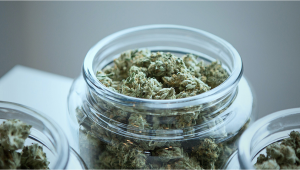
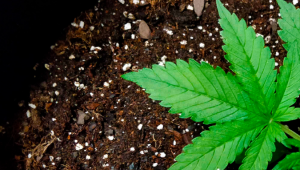
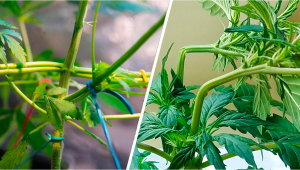
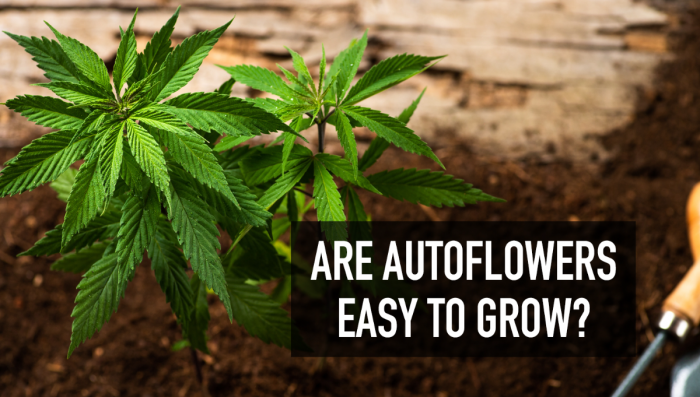
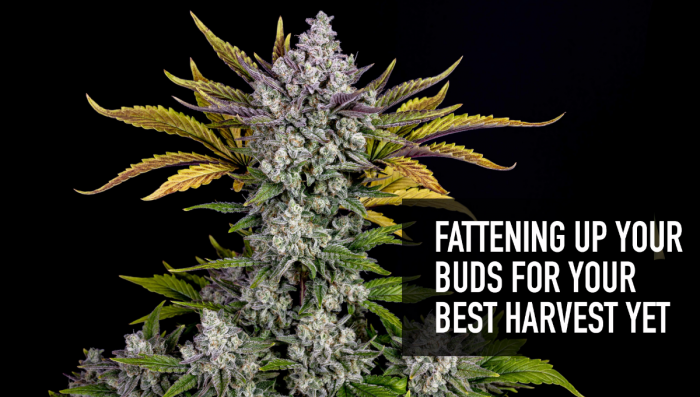
Comments